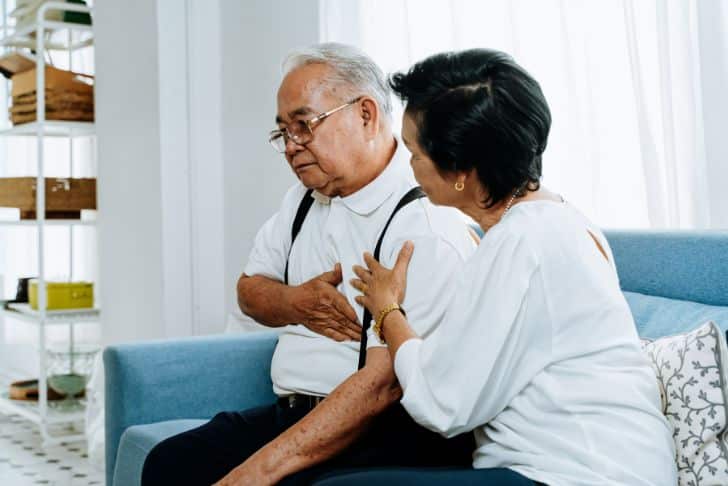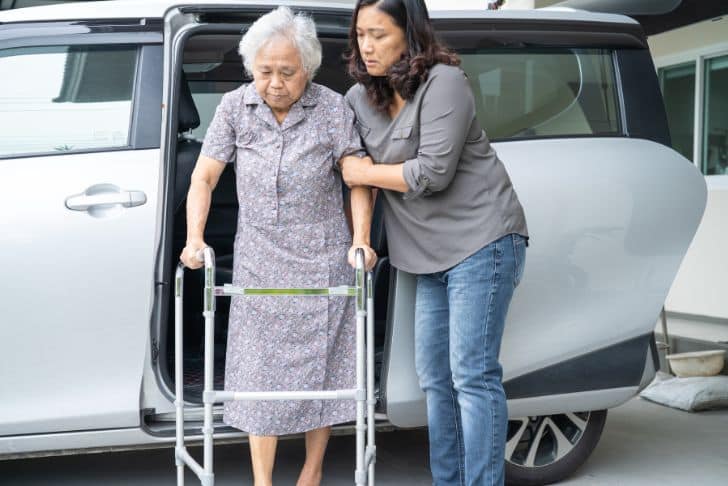Imagine being in a position where a loved one is grappling with a terminal illness. The priority shifts from curing the disease to making the final stage of their life as comfortable as possible. The article “Providing Comfort and Support: An Insight into Late-Stage and End-of-Life Care,” sheds light on this sensitive juncture. It covers a wide swath of insights into this stage of life that often lasts weeks to years, requiring a tailored approach to each patient’s unique needs. You’ll gather a deep understanding of crucial aspects such as palliative care, which helps in managing intimating symptoms like pain and shortness of breath, and hospice care, providing emotional and spiritual support not only for patients but also their families.
Additionally, this article renders crucial insights into legal and financial advice, underscoring the importance of early discussion with family about end-of-life plans .At the same time highlighting crucial legal instruments like living wills and power of attorney. Trust this as a roadmap to rendering the best possible support to your loved ones in the twilight of their lives.

Understanding Late-Stage and End-of-Life Care
Definition of late-stage and end-of-life Care
Late-Stage and End-of-Life Care are terms used to describe a specialized kind of care. Focused primarily on maintaining the comfort and quality of life for someone facing the last days, weeks, or months of a life-limiting illness. Unlike care aimed at curing or extending life, the effort here is oriented towards making the patient’s remaining time as comfortable, pain-free, and dignified as possible.
The goal of end-of-life care
The primary goal of end-of-life care is to ensure the comfort of the patient while minimizing pain and distress. This goes beyond physical well-being to include mental, emotional, and even spiritual dimensions. It aims to make a patient’s final days as fulfilling and peaceful as possible, while also supporting the patient’s family or primary caregivers.
Duration and unique challenges of end-of-life care
The duration of late-stage and end-of-life care is highly variable, depending on the nature and progression of the patient’s illness. It could range from just a few days to several months, or even years. This variable duration presents unique challenges such as maintaining sustained emotional support, managing ongoing physical pain, and adjusting care as the patient’s condition changes.
Components of End-of-Life Care
Palliative care and its role
Palliative care plays a vital role in end-of-life care. It aims to alleviate symptoms such as pain, nausea, and shortness of breath that limit a patient’s quality of life. It is designed to be supportive and comforting, promoting quality of life when cure or life extension is no longer realistic.
Features and services of hospice care
Hospice care is another critical component of end-of-life care. It provides a range of services from medical care to manage pain and other symptoms, to emotional and spiritual support for patients and their families. It is centered on providing compassionate care outside of a clinical setting, often in the patient’s home.
Difference between palliative and hospice care
Although both hospice and palliative care aim to support and comfort the patient, the difference lies in the stage of illness and the care goals. Palliative care can start at any stage of a serious illness, while hospice care typically comes into play when all curative options have been explored and the patient has chosen comfort over cure.
When to Start End-of-Life Care
Factors influencing the start of end-of-life care
There are several factors that might shape the timing of when to start end-of-life care, including the progression and prognosis of the illness, the effectiveness of ongoing treatments, and the patient’s wishes. It is a deeply individual decision and will vary from patient to patient.
Understanding the progression of the illness
Being aware of the progress of the disease – understanding what to expect, how symptoms might evolve, and the projected timeline – can be essential in determining the right time to begin end-of-life care. This information can be obtained from healthcare professionals managing the patient’s case.
Determining individual needs as per the disease progression
As a disease progresses, the patient’s needs, preferences, and care requirements will likely change. Recognizing and responding to these evolving needs – from changes in pain management to psychological support – will be central in shaping effective end-of-life care.
Changes in Patient and Caregiver Needs in Late-Stage Care
Shift in routine activities of the patient
As illness advances, patients may find themselves unable to carry out everyday activities like bathing, feeding, and dressing, and may require assistance in managing these regular tasks. This means that the caregiver’s role in attending to these activities may increase in both scope and intensity over time.
Increased demand for physical strength of the caregiver
Given the changing needs of the patient, it follows that the physical demands on the caregiver may also increase. This could involve lifting or moving the patient, or even simply having the endurance to provide round-the-clock care.
Adapting to changing emotional demands from both patient and caregiver
The emotional landscape can shift significantly throughout the course of late-stage and end-of-life care. Patient and caregiver may experience various emotions – fear, sadness, anger or frustration. Balancing these feelings while maintaining a supportive and compassionate environment is a challenge that both parties are likely to face.

Support Services Beneficial for Patient and Family
Role of hospice and palliative care services
Both hospice and palliative care services are invaluable supports for both patient and family during the end-of-life phase. They can provide comprehensive care that targets not only physical but also psychological and spiritual aspects, helping ensure quality of life for the patient and easing caregiver stress.
Importance of financial and legal advice
Financial and legal advice are critical, but often overlooked support services. Navigating through healthcare costs, insurance paperwork, and estate planning can be overwhelming, but having experienced professionals provide this advice can reduce stress and aid in making informed decisions.
Providing bereavement support to the patient and family
The grieving process begins long before an individual passes away. Bereavement support for the patient and family can help cope with this anticipatory grief, offering emotional support and professional guidance to manage the complex feelings that come with end-of-life situations.
Discussing End-of-Life Plans
Why early discussion of end-of-life plans is critical
End-of-life conversations are never easy, but they are critically important. Early discussions allow patients to express their wishes and preferences for their care, ensuring that they are the ones driving decisions about their own lives. This can bring comfort and peace of mind to both the patient and their loved ones.
Involvement of family members in decision-making
Involving family members in the decision-making process is equally important. It provides them with a better understanding of the patient’s wishes, helps them support the patient better, and maintains open communication throughout the process, minimizing potential stress and confusion.
Addressing patient’s preferences in treatment
Discussing end-of-life plans gives the patient the opportunity to communicate their preferences about various treatments. Whether it’s stating which measures they want, like pain management, or which to avoid like resuscitation, these plans ensure the patient’s medical care aligns with their personal values and desires.

Legal Documents for End-of-Life Arrangements
What is a living will
A living will is a legal document that communicates a person’s preferences for medical treatment if they’re unable to express those decisions on their own. This can be particularly important when making end-of-life decisions, offering clear direction on what a patient does or does not want regarding medical interventions.
Understanding power of attorney
A power of attorney (POA) is another legal document that appoints one person to make decisions on behalf of another. In the context of end-of-life care, this could involve making healthcare decisions when the person is no longer able to do so themselves.
How legal documents express patient’s wishes for future healthcare
Both living wills and powers of attorney are tools that can help a person’s wishes for future healthcare be respected. They provide a clear guide for caregivers and healthcare providers, helping to eliminate uncertainty and ensuring the patient’s wishes are at the heart of any decisions made.
Common Challenges and Solutions in End-of-Life Care
Dealing with physical pain and distress
Managing physical pain is perhaps the most immediate and evident challenge in end-of-life care. Effective pain management strategies often involve a combination of medical interventions and non-pharmaceutical techniques (such as relaxation exercises), all of which should be individualized to each patient’s distinct symptoms and thresholds.
Addressing anxiety, depression, and fear
Emotional discomforts, like anxiety, depression, and fear, are quite common during this life stage. They may be due to the illness, proximity to death, or even the fear of being a burden. Dealing with such issues requires a lot of understanding, empathy, open communication, and in some cases, professional psychological support.
Managing spiritual and existential crises
The end of life can trigger deep spiritual or existential questions. Chaplains, spiritual care advisors, or philosophical counselors can help individuals navigate these emotions and questions, bringing comfort and potential closure in their final days.
Helping with practical tasks and coordination of care
From scheduling medical appointments to managing multiple treatment options, the coordination of care can be a task in and of itself. This can induce stress and exhaust the caregiver. To ease this, you might avail of care management services or have a hospice team help with this coordination.
Caring for the Caregivers
Understanding caregiver burnout
Behind every end-of-life care scenario, caregivers are continuously working to support the patient. Their role is physically and emotionally demanding, and caregiver burnout is a common risk. It’s critical to recognize the signs of burnout including physical exhaustion, emotional detachment, and a feeling of being overwhelmed, as early as possible.
Value of support groups and counselling
Support groups and counseling services can be exceedingly helpful to caregivers. They provide a safe space to express emotions.hare experiences, learn from others going through similar journeys, and understand that they are not alone in their struggles.
Ensuring self-care and resilience amidst ongoing responsibilities
While it is important to provide for the patient, it’s equally necessary for caregivers to look after their own needs. Regular rest and recreation, maintaining good health and nutrition, seeking help when needed, and taking some ‘me-time’ can greatly improve resilience and efficiency in providing care.
Quality of Life and Dignity at the End of Life
Defining ‘quality of life’ in the context of end-of-life care
In the context of end-of-life care, ‘quality of life’ refers not to the quantity of life left, but the value, comfort, and satisfaction experienced in the remaining days. It’s about making the most of the time that is left, focusing on comfort, peace, and fulfillment rather than cure and prolongation of life.
Upholding dignity and respect to the end
Respecting the dignity of the patient at the end of life is a guiding principle that underlies all aspects of care. Their preferences should be respected, their personal and cultural values honored, and their autonomy maintained as much as possible. All actions or interventions should prioritize preserving this sense of dignity above all.
Helping the patient find meaning and purpose in their situation
Even as life draws to a close, it’s essential to help patients find meaning and purpose in their situation. Whether this is through settling personal affairs, achieving specific goals, or engaging in spiritual or religious practices, these pursuits can have a substantial impact on a patient’s sense of fulfillment and peace in their final days.
